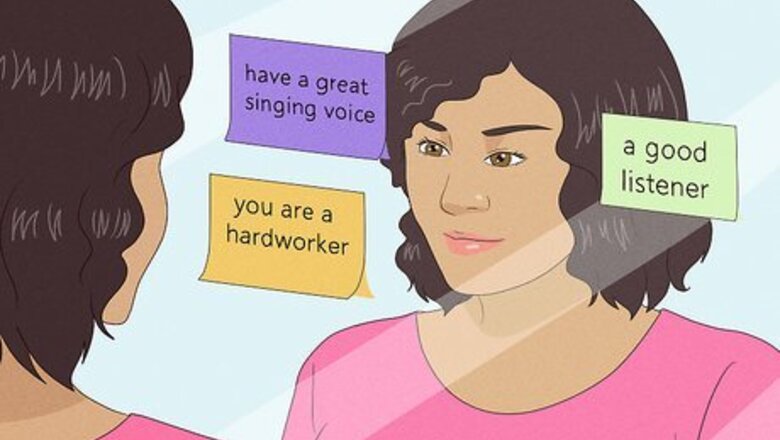
views
Getting in the Right Mindset
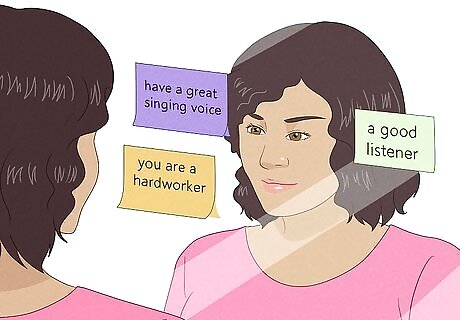
Be proud of your strengths. If you want to be self-confident, then the first thing you have to do is to think about all of the things you already have going for you. You may feel like there's nothing good about you, that you have no redeeming qualities, and that everyone around you is somehow better-looking and more impressive than you are. Well, all of that has to go out the window if you're determined to change! Make a list of all of the things you're good at, from being a good listener to having a great singing voice. Then, write them on sticky notes and put them on your mirror or somewhere you'll see them every day. These qualities may not mean much to you, but you have to think about the fact that you do have plenty of things to be proud of. If you really like the list idea, then you can even keep the list handy. Add to it whenever you think, "Oh, right, there's something else I'm good at..." When you're feeling low or like you're not worth much, read it over and you'll feel better. Talk to a close friend about it. Ask your friend what he or she thinks your strengths are. Your friend may come up with something that you never even considered because it was right before your eyes!
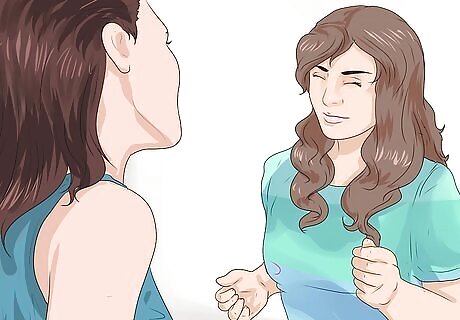
Work to be an optimist. Of course, optimism, like Rome, cannot be built in a day, but that doesn't mean it's not worth it to start building a foundation of positive thinking and an expectation for the best. Optimism and confidence often go hand in hand, because people who are hopeful for the future and expect good things to happen tend to think that good things will happen to them if they go out into the world or just try hard enough. Practice monitoring your thoughts to see how many of them are negative, and work to counteract every negative thought with at least three positive ones. With enough hard work, you'll soon be able to see the world in a more favorable light. The next time you're with your friends, practice talking about the exciting things in your life or the things you have to look forward to, and you'll see that people will respond better to you, and that you'll find yourself in a better mood.

Be prepared. Being prepared for any situation -- within reason -- can also help you be self-confident. If you're walking into a math test, you better have put in the hours of studying necessary to succeed. If you're giving a presentation in front of class, you should have practiced until you got it down cold. If you're going to a party, you should learn as much as you can about it, such as who will be there, when it starts, and other details, so you feel like there are less X factors when you walk into the room. While it's impossible to be 100% prepared for any situation -- which is part of the fun and mystery of life -- it can certainly help to feel like you have a sense of what you signed up for. If you're in a group setting and feel like you have something to contribute, then you'll feel more self-confident than if you just hang back, listening to everyone else's opinions. You don't have to chatter constantly to build your confidence, but you should talk often enough that you feel like you have many worthwhile things to say. You can cultivate things to contribute by reading interesting articles, watching the news, or doing research about current events or things that interest you. Bring up a topic that you have researched in a conversation and see where it goes. Having information to back what you say will help you feel more confident in a conversation. If you know something or have a particular skill-- anything from how to build furniture to how to choose the right pair of shoes for prom-- people may turn to you for help. You can build a lot of confidence by helping others and seeing that they have something to gain from you.

Stop comparing yourself to other people. You need to focus on yourself and how to reach the goals you want to reach instead of peeking over at your neighbor and wondering why you can't be as attractive/smart/confident as he is. Be kind to yourself and focus on your own dreams and goals, and be proud of yourself for accomplishing them. Realize that it’s common to idealize the lives of others from what you see. In other words, you don’t see the whole picture of a person’s life from casual interactions. If you begin comparing yourself to someone else, stop and refocus on yourself. Identify ways in which you are successful, happy, or improving your situation. People who lack confidence are constantly questioning themselves and the world around them. Leave less room for doubt by feeling capable of the task that lies ahead of you.

Get rid of as many sources of negativity as you can. Unfortunately, it may be impossible to get rid of every little thing that is making you feel down about yourself, but you can definitely make an effort to surround yourself with positive people and situations where you feel good about yourself. Here are some things to consider: If you feel bad about your body or general appearance because you're always flipping through celebrity magazines or watching television, then try to divorce yourself from that culture as much as you can. If you spend time with a friend, family member, or significant other who is always making you feel worthless, then it's time to question your relationship. You can try to make changes to your relationship by using assertive communication to address the way the person makes you feel. If the relationship doesn’t or can’t improve, you may need to make the decision to end or limit your time with the person. If you play a sport that you really hate and feel like you've put in all of the effort you can and still nothing works out, then it may be time to find another club that suits your needs better; this is not to say that you should quit whenever the going gets tough, but that you should learn to recognize when something's just not working for you.
Putting It into Action
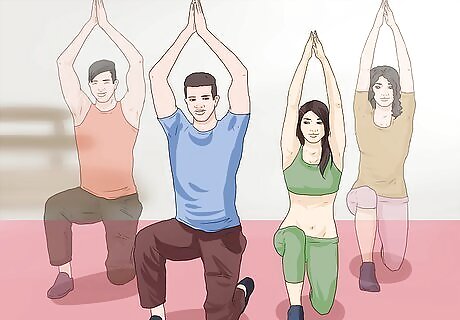
Embrace the unknown. If you have trouble with self-confidence, then doing something completely new and different probably doesn't exactly excite you. Well, it's time to be brave and venture forth to do something you never expected to do. This could be introducing yourself to a new group of people at a party, signing up for a dance class though you have two left feet, or applying for a job that sounds fantastic but overwhelming. The more you get into the habit of trying new things, the more secure you'll feel, because you'll get the sense that you can handle any curve ball life may throw at you. Here are some other great ways to embrace the unknown: Start small. Strike up a conversation with someone you see a lot but never talk to, such as the guy who sits next to you in math class or your neighbor. Plan a trip to a new place, even if it's just a city 50 miles (80 km) away from your hometown. Get in the habit of going new places and seeing new things. Try your hand at learning a foreign language. Doing something that feels completely unfamiliar to you is fun and can build your confidence.

Take more risks. Taking (reasonable) risks is related to embracing the unknown and asserting yourself as an individual. If you want to be more self-confident, then you have to not only try new things, but you have to be up for doing something that feels a little bit scary or uncertain to you. Not every risk you take will lead to something great, but it will get you into the habit of putting yourself out there and seeing what happens. Taking risks will make you feel like you aren't confined to the small set of things you already feel comfortable with and that you are capable of anything. Step out of your comfort zone at least once a day. This could mean talking to your crush -- or even asking him or her out, if you've worked up the courage! If you're unhappy at work but feel afraid to leave, try applying to just one job. Even if nothing comes of it, you'll see that the risk you took wasn't all that scary. Confront your fear, while you're at it. While you don't have to bungee jump if you're afraid of heights, you can take an elevator to the top of a ten-story building and look out a window. You'll see that you really can overcome whatever is holding you back. Dolly Parton Dolly Parton, Singer Be brave and trust your abilities. "Above everything else I've done, I've always said I've had more guts than I've got talent."

Spend time with people who make you feel good about yourself. Maintaining positive influences can be even more beneficial to building your self-confidence than cutting out negative influences. If you spend a lot of time with people who are supportive and offer stress- and drama- free social support, you will benefit by feeling more confident about yourself and dealing with your emotions more effectively. Make a habit of spending as much time with people who treat you well as you can. Hanging out with people who are self-confident can also be a big help. Instead of being jealous of those people, study them and ask yourself, "What do they do differently than me, and how can I cultivate a similar manner?" You'll find that the people who are confident aren't necessarily "better" than you in anything -- except having a positive outlook about themselves.
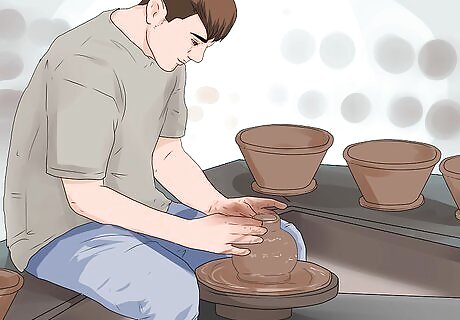
Cultivate a hobby. Having something that you’re good at—or better yet, passionate about—can help you feel well-rounded and happier. This can give you a boost in confidence. Having a hobby can stimulate your creativity, which translates to other situations such as the workplace and your social interactions as well. Furthermore, a hobby can help cultivate the social support that is beneficial to your emotional well-being. Be sure that you allow yourself to set aside time for your hobby or activity that makes you happy. This can be difficult for people who have a lot of work or familial commitments, but it is important.

Show confidence in your body language. Stand up tall; having great posture can go a long way in making you appear and feel more confident. If you slouch all the time, that's sending yourself and the people around you a signal that you're not happy with who you are and want to be smaller than you appear to be. Instead, keep your back straight and your shoulders pulled back with your chest out. Don't cross your arms over your chest, either. Keep them at your sides or use them to gesture. This will make you look more approachable and to feel more open. Make natural eye contact when you talk to people. If you look people in the eye, that's sending a message that you're comfortable talking to them on an even level, and that you're open to new ideas. Making eye contact with people can also help you keep your head up. Looking down at the ground or at your feet all the time is another thing that can make you both look and feel less confident. You should also walk with strong, confident strides instead of shuffling or dragging your feet. This will help you look and feel more confident as well.
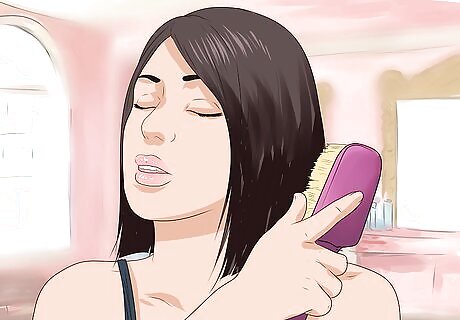
Put time into your appearance. If you spend enough time on your appearance to show that you care about yourself, you will see that you'll start to view yourself more positively. If you want to be more self-confident, then you should make sure to practice good hygiene, to shower daily, to comb your hair, and to wear clothes that are clean and free of wrinkles. If you don’t care for your physical appearance, you’re communicating to yourself and others that you do not feel as though you are worth the time it takes to practice self-care. If you look in the mirror and see a person who is well-groomed, you'll be much more likely to value yourself. Wear clothes that make you feel good about yourself. This likely means clothing that fits you (at your current size) and has a flattering look that fits with your personality. This doesn't mean you should put on a ton of makeup or wear clothes that make you feel like you're being someone else. You should always be yourself -- just a clean, hygienic version of yourself.
Continuing to Grow
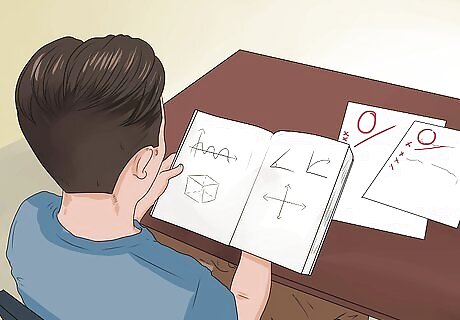
Learn from failure. People who are self-confident are not a wild success at everything they try. But the people who are self-confident do embrace failure and learn from their mistakes instead of giving up on anything that doesn't go their way. The next time you don't do well on a math test, don't get hired after an interview, or get rejected by a date, don't let this discourage you from asking yourself what went wrong and how you can learn from it. Of course, some of the time, you may just be a victim of bad luck, but it's important to feel as in control of every situation as you can so that you can do better the next time. The mantra, "If at first you don't succeed..." really is true. Think of how boring life would be if you were the best at everything you tried. Instead, look at failure as an opportunity to prove yourself the next time around. The important thing is to learn where you went wrong along with accepting when something was just dumb luck.
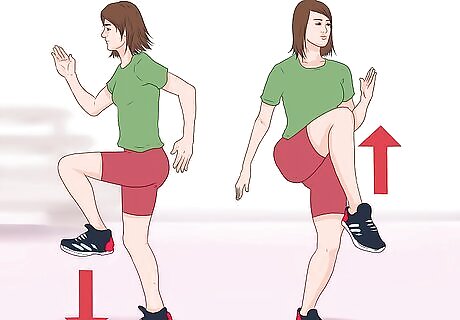
Exercise more. Though exercise alone won't make you feel like a million dollars, getting in the habit of exercising for at least 30 minutes daily, or just a few times a week, can go a long way in making you feel both mentally and physically better about yourself. Exercise builds endorphins and will physiologically make you feel better about yourself and the world, while also providing your body with valuable benefits. It's a win-win situation, and making a goal of exercising as much as is comfortable for you can help you feel more self-confident. You can even use exercise as an opportunity to step out of your comfort zone and to try something new. Maybe you've been scared about trying yoga or taking a Zumba class, but once you sign up, you'll find that it wasn't as scary as it sounded.

Smile more. It's been proven that smiling will not only make you happier, but it will make the people around you react more positively to you. Smiling, even when you feel like it's the last thing you want to do, can also make you feel more confident when you approach people and go about your day. Smiling will also make people feel more able to come up to you, and you could be inviting a new friend or a new opportunity to come your way just by moving your lips. There's no reason not to smile more, no matter how down you're feeling!
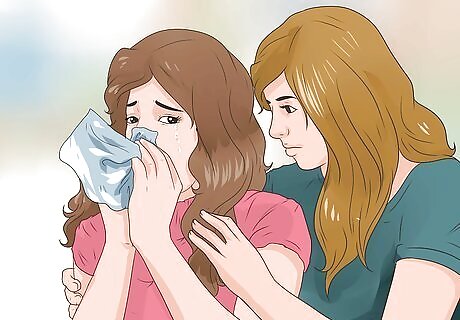
Don't be afraid to ask for help. Being self-confident doesn't mean you have to be a jack-of-all trades who is amazing at every little thing he does. But it does mean that you're the kind of person who can admit when you can't do something on your own. There's a pride and confidence that comes from knowing when you're out of your element, and if you ask for help when it's needed, you'll not only be able to accomplish more, but you'll feel proud of yourself for making the effort to approach someone and asking for guidance. If you ask people for help, they'll be more likely to ask you for help in return, and you'll see how needed you really are.
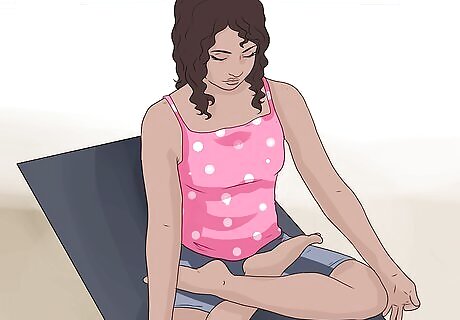
Learn to live in the present. If you lack self-confidence, you may find yourself dwelling on actions of the past or worrying about the outcomes of future actions. Living more in the moment can help you be at-peace with the way things are now. This can help you feel happier and more relaxed, but it can also be a difficult habit to cultivate. Learning to let go of worry for the future and accept what has happened in the past can help you live in the present. Practice yoga or mindful mediation. This can also help you live in the present.



















Comments
0 comment